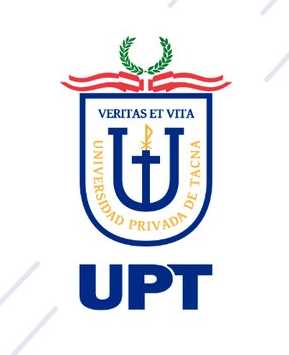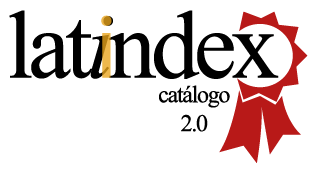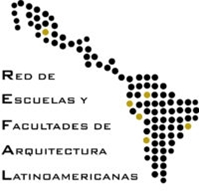Educational infrastructure and tax works in a political scenario of social profitability
DOI:
https://doi.org/10.47796/ra.2021i20.555Keywords:
: works for taxes, educational infrastructure, social profitabilityAbstract
The improvement of educational infrastructure and tax works within the political scenario of social profitability, shows the private sector the tool to achieve a high level of perception of social responsibility. Where the objective is to determine if there is a relationship between tax works and the improvement of the educational infrastructure in each of its dimensions in times of social profitability. For this, the proposed methodology is the descriptive mode of non-experimental design of the correlational type with a quantitative approach. Where the result using the Rho Spearman symmetric measure of correlation indicates that there is a moderately high positive relationship of .614 with significance of p = 0.000> 0.05. This leads us to determine the existence of a positive relationship of the moderate level in high perception between both variables with a perception level of medium level in the academic, infrastructure and well-being dimensions of the variable Improvement of educational infrastructure. Concluding that the OxI help to consolidate the sustainable strategic alliance between the state, the private sector and the citizen, proposed as the Win-Win (Tec-Ww) collaborative success triangle.
Downloads
References
Albújar, A., Cruz, E. S., Albújar, J., Gómez, E., Quezada, K., y Terrones, S. (2016). Obras por Impuestos: factores que promueven la participación de la empresa privada. Journal of Chemical Information and Modeling, 53 (9). https://repositorio.esan.edu.pe/handle/20.500.12640/105.
Banco de Desarrollo de América Latina CAF. (2016, octubre 4). La importancia de tener una buena infraestructura escolar. https://www.caf.com/es/actualidad/noticias/2016/10/la-importancia-de-tener-una-buena-infraestructura-escolar/.
Behar, D. (2008). Metodología de la investigación. Editorial Shalom. https://es.scribd.com/doc/215401918/METODOLOGIA-DE-LA-INVESTIGACION-DANIEL-S-BEHAR-RIVERO.
Beltrán, A., y Seinfeld, J. (2013). La trampa educativa en el Perú. Cuando la educación llega a muchos pero sirve a pocos, Vol. 148. Universidad del Pacífico. https://repositorio.up.edu.pe/handle/11354/1419.
Banco Interamericano de Reconstrucción y Fomento, Asociación Interamericana de Fomento y Banco Mundial. (2016). Perú infraestructura educativa al 2025. Ministerio de Educación. http://repositorio.minedu.gob.pe/handle/20.500.12799/5087.
Bosch, R. (2018). Designing for a better world starts at school. https://read.amazon.com/?asin=B07D2GWFLV.
Bravo de la Ossa, A. (2018). La educación como eje fundamental para el desarrollo. Revista Dialogus, 1, 20-30. https://doi.org/10.37594/dialogus.v1i1.151
Castillo, P. (2021). Discurso de asunción del presidente de la república en la toma de poder ejecutivo. https://cdn.www.gob.pe/uploads/document/file/2049663/Mensaje_a_la_nacion_presidente_Pedro_Castillo.pdf.pdf.
Chinchay, C. (2018). Competencias gerenciales y desarrollo organizacional en la Municipalidad Distrital de Miguel Checa, 2018 [Tesis de maestría, Universidad César Vallejo]. Repositorio Institucional.
Durkheim, É. (2015). Educación y sociología. Penínsul impresci. https://www.planetadelibros.com/libros_contenido_extra/28/27793_Educacion y sociologia.pdf.
González, J. (2016). Empresa privada: principal socio en el posconflicto y la construcción de la paz. Panorama, 10(18), 84-92. https://doi.org/10.15765/pnrm.v10i18.823.
Hanushek, E. (1995). Interpreting recent research on schooling in developing countries. The World Bank Research Observer, 10(2), 227-246. https://doi.org/10.1093/WBRO/10.2.227.
Hernández, R., y Mendoza, C. (2018). Metodología de la investigación: las tres rutas cuantitativa, cualitativa y mixta. Mc Graw Hill. http://www.mhhe.com/latam/sampieri_mi1e.
Luquequispe, M. (2019). Factores que explican la brecha urbano-rural de los aprendizajes en las instituciones educativas públicas [Tesis de maestría, Pontificia Universidad Católica del Perú]. Repositorio Institucional.
Martínez, H., Gutierrez, P., y Medina, D. (2019). Obras por impuestos: medida para transformar las zonas más afectadas por el conflicto armado en Colombia. ¿Mantenerlo? ¿Para qué? Revista Desarrollo y Sociedad, 38(48). https://bibliotecadigital.ccb.org.co/handle/11520/22902.
Ministerio de Economía y Finanzas. (2021, septiembre 29). Marco Normativo: Obras por Impuestos. https://www.mef.gob.pe/es/?option=com_content&language=es-ES&Itemid=100270&lang=es-ES&view=article&id=3976.
Miranda, F. (2018). Infraestructura escolar en México: brechas traslapadas, esfuerzos y límites de la política pública. Perfiles Educativos, 40(161), 32-52. http://www.scielo.org.mx/scielo.php?script=sci_arttext&pid=S0185-26982018000300032.
Montiel, I., Mayoral, A., Navarro, J., y Maiques, S. (2019). Acoustic comfort in learning spaces: moving towards sustainable development goals. Sustainability (Switzerland), 11(13), 1-18. https://doi.org/10.3390/su11133573.
Organización de Naciones Unidas. (2020). Informe de los Objetivos de Desarrollo Sostenible 2020. file:///C:/Users/Usuario/Downloads/The-Sustainable-Development-Goals-Report-2020_Spanish.pdf.
Parra, O. (2020). Paz, territorio, Estado local y empresariado. Experiencias con el mecanismo de obras por impuestos en Risaralda. Campos en Ciencias Sociales, 8(2), 263-290. https://doi.org/10.15332/25006681/6019.
Ley N° 30264 del 2017. Ley que establece medidas para promover el crecimiento económico.
Programa de Naciones Unidas para el Desarrollo y Organización de Nnaciones Unidas. (2015). Objetivos de Desarrollo Sostenible.https://www.un.org/sustainabledevelopment/es/sustainable-development-goals/.
ProInversión / Perú. (2021, septiembre 16). Ranking de obras por impuestos (OXI). https://www.investinperu.pe/es/oxi/estadisticas/ranking-de-obras-por-impuestos.
Rubiños, C. (2020). El efecto de las obras por impuestos en la reducción de la brecha de la infraestructura de servicios en el Perú 2009-2019 [Tesis de doctorado, Universidad César Vallejo]. Repositorio Institucional. https://repositorio.ucv.edu.pe/handle/20.500.12692/46236.
Tejada, S., y Palomeque, L. (2019). Obras por impuestos: una apuesta para el desarrollo económico y social de las comunidades rurales. Journal of Chemical Information and Modeling, 22(9), 1-14. https://revistas.udea.edu.co/index.php/adversia/article/view/339250.
Vélez, E., Schiefelbein, E., y Valenzuela, J. (1994). Factores que afectan el rendimiento académico en la educación primaria. http://repositorio.minedu.gob.pe/handle/20.500.12799/4317.









